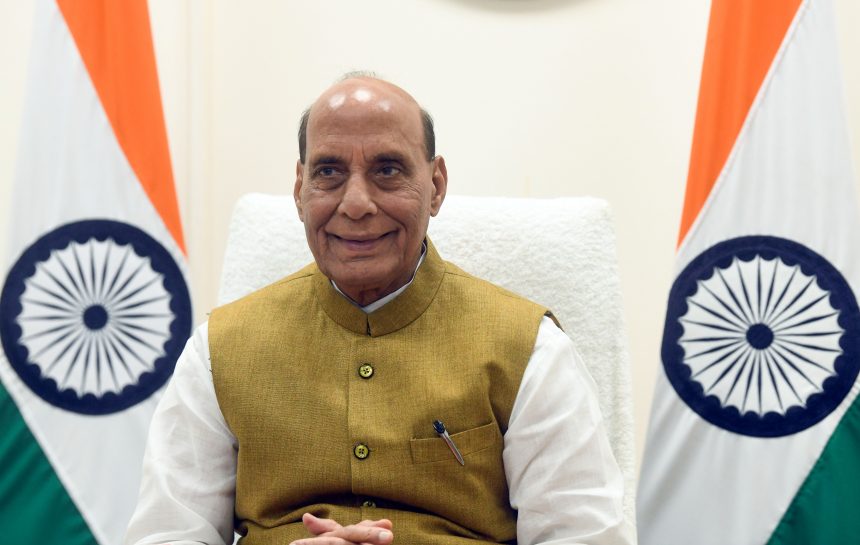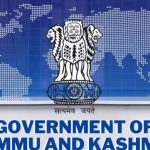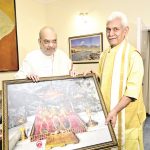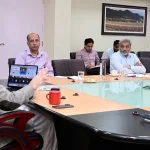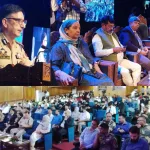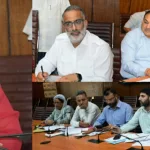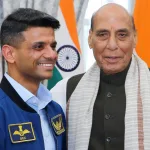New Delhi, May 29: In a strong statement reaffirming India’s stance on Pakistan-occupied Kashmir (PoK), Defence Minister Rajnath Singh said that PoK is an integral part of India and that its people, currently separated geographically and politically, would eventually reunite with the country. “There are only a few misled individuals there,” he said, adding that the rest share a deep connection with India.
Speaking at the Inaugural Plenary of the Confederation of Indian Industry (CII) Annual Business Summit in New Delhi, Singh linked the success of the indigenous defence manufacturing initiative, Make-in-India, to India’s effective operations against terrorism in Pakistan and PoK during Operation Sindoor. “Our forces could act decisively only because India had strengthened its indigenous defence capabilities,” he said.
Referring to the Advanced Medium Combat Aircraft (AMCA) programme, the Defence Minister said it represents a landmark in India’s aerospace ambitions. The new Execution Model, for the first time, brings the private sector into a mega defence project alongside public sector entities, a move he called “bold and decisive.” The AMCA will include the development of five prototypes, followed by serial production of a fifth-generation fighter aircraft.
“Make-in-India is not just about industrial growth; it is vital for national security,” Singh asserted, underlining how domestically-developed systems enabled precise and restrained action during Operation Sindoor. “We destroyed terrorist hideouts and military bases. We could have done more, but chose a balanced path of power and restraint,” he said.
On PoK, Singh reiterated the government’s firm resolve, stating that India’s future engagements with Pakistan would be limited strictly to discussions on terrorism and PoK. “India has redefined its strategy. Pakistan now knows that supporting terrorism comes at a cost,” he said.
Using an evocative metaphor, Singh compared the people of PoK to Shakti Singh, the younger brother of Maharana Pratap. “Our belief in their eventual return is unwavering,” he said, quoting: ‘Tab kupanth ko chhod supath par swayam chala aayega. Mera hi bhai hai, mujhse door kahaan jaayega.’
The Defence Minister also highlighted India’s growing stature in defence manufacturing. “Ten years ago, India’s defence production stood at around ₹43,000 crore. Today, it has crossed ₹1.46 lakh crore, with the private sector contributing ₹32,000 crore,” he noted. Defence exports, he added, had jumped from ₹600–700 crore to over ₹24,000 crore, reaching nearly 100 countries. More than 16,000 MSMEs now support the sector’s supply chain.
Singh stated that India is progressing rapidly in frontier technologies such as artificial intelligence, cyber defence, unmanned systems, and space-based security. “We are no longer just consumers of defence technology — we are creators and exporters,” he said.
Touching upon the summit’s theme “Building Trust & India First,” Singh said trust is sustained by national security and self-confidence. “A country’s strength is measured not just in GDP or investment, but in its ability to protect its people and interests,” he said. “Our industry must keep national interest above all. If serving your company is karma, serving the nation is dharma.”
He called upon Indian industry leaders to align more closely with strategic national goals. “Government and industry must move in synergy to make India a developed nation by 2047,” Singh said.
Among those present at the summit were Chief of the Naval Staff Admiral Dinesh K Tripathi, Chief of the Air Staff Air Chief Marshal AP Singh, Defence Secretary Rajesh Kumar Singh, DRDO Chairman Dr Samir V Kamat, Vice Chief of the Army Staff Lt Gen NS Raja Subramani, CII President Sanjiv Puri, and other key industry figures.


